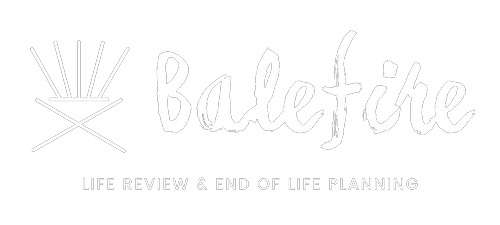How to Plan for a Loved One’s Care Without Losing Yourself in the Process
Preparing Is an Act of Love—For Them and for You
Caregiving can feel overwhelming, but it doesn’t have to consume your life. Whether you're stepping into the role of caring for an aging parent, a sick partner, or a disabled loved one, the emotional and practical weight of it all can feel crushing—especially if you weren’t prepared for it. If you’re like most people, you didn’t plan for this.
But here’s the truth: Caregiving is a natural part of life, and preparing for it is one of the greatest acts of love you can offer—not just to your loved one, but to yourself. Instead of trial by fire, let’s build a plan together—one that allows you to provide the care they need while still protecting your time, energy, and peace of mind.
The Reality of Future Caregiving: It’s Coming, Whether You’re Ready or Not
Most people don’t think about caregiving until they’re in the middle of it. It’s not typically part of their life plan. But whether it’s a slow progression or a sudden event, at some point, you may find yourself in the position of caring for someone you love.
When I stepped into caregiving support for my grandmother, I didn’t resist it—I accepted it. And while it gave me a profound sense of purpose, it also brought a tidal wave of emotions: love, exhaustion, gratitude, resentment, connection, and loneliness—often all at once.
If you’re facing caregiving, know this: Your emotions are valid. All of them. The highs, the lows, the contradictions. And you are not alone in feeling them.
But if I could go back and give myself one gift before I took on that role, it would be a plan.
Planning ahead wouldn’t have erased the challenges, but it would have made everything more manageable. It would have allowed me to step into caregiving with confidence instead of exhaustion, with intention instead of panic.
And that’s what I want for you.
Creating a Plan That Honors Both of You
If you’re facing—or even just anticipating—a caregiving role, the best thing you can do is prepare now, while you’re clear-headed, before a crisis forces your hand.
Start with these essential steps:
✅ Understand medical and daily care needs.
Learn about mobility limitations, infection control, bedsores, and toileting needs before you’re in the thick of it.
Educate yourself on the realities of long-term care so you're not scrambling when the time comes.
✅ Have the hard conversations.
Ask your loved ones where their important documents are, what their preferences are, and who they trust to make decisions.
Help them put a care plan in place so you’re not left guessing.
✅ Practice small caregiving acts now.
Check in on a friend regularly, bring meals, or attend a doctor’s appointment with them.
Get comfortable with the role in small ways before it becomes a major responsibility.
When we treat caregiving as something that only happens to us, we’re left unprepared. But when we choose to engage with it intentionally, we create better experiences for everyone involved. Preparing in advance isn’t just a kindness to your loved one—it’s an act of love for yourself, too.
Preventing Caregiver Burnout Before It Starts
Even with preparation, caregiving is hard. The last thing your loved one wants is for you to burn yourself out taking care of them. That’s why your well-being has to be part of the plan.
Here’s how to keep caregiving sustainable:
🔹 Build a network of support.
You can’t do it alone. Involve family, friends, and professionals early.
Set up clear expectations about who is responsible for what.
🔹 Take care of yourself like it’s your job.
Get your bloodwork done. Move your body. Eat well. Sleep.
Laugh. Cry. Feel all of it.
🔹 Set boundaries before you need them.
Be honest about what you’re willing to do.
If hands-on care isn’t for you, there are still ways to support your loved one (coordinating care, managing finances, organizing legacy projects).
There’s no one-size-fits-all approach to caregiving. But if you don’t think about your limits now, someone else will set them for you later.
The best way
to be a good caregiver
is to make sure you don’t
disappear in the process.
You Don’t Have to Do This Alone
Caregiving is an enormous responsibility, but you don’t have to figure it all out by yourself. Preparing ahead of time gives you the power to care for your loved one in a way that feels sustainable—not overwhelming. It allows you to show up with love instead of resentment, with confidence instead of fear.
Whether you’re just starting to think about your role or you’re already deep in the process, I hope this post inspires you to start some conversations—whether with your loved ones directly or with me.

